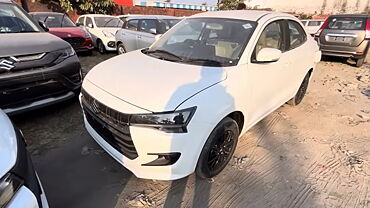
- Toyota seeks viable tax structure in India
- Auto industry seeks government support
Japanese car manufacturer, Toyota Kirloskar Motor has briefly pulled brakes on its expansion plans in India citing government’s high tax regime in the country. Shekar Viswanathan, vice chairman of Toyota’s local unit, Toyota Kirloskar Motor stated that under the current taxation policy, automotive companies are reportedly facing difficulties in expanding the business. Due to a higher cost, the customers are also finding it difficult to own a car.
The Indian government has been trying to lure global companies to set up businesses in India under the Make-in-India initiatives. However, due to the absence of any reforms, Toyota will not exit India and will not scale up either. Toyota has issued an official statement in this regard, which states, “Toyota Kirloskar Motor would like to state that we continue to be committed to the Indian market and our operations in the country are an integral part of our global strategy. We need to protect the jobs we have created and we will do everything possible to achieve this. Over our two decades of operations in India, we have worked tirelessly to build a strong competitive local supplier eco-system and develop strong capable human resources. Our first step is to ensure full capacity utilisation of what we have created and this will take time.
In the wake of the slowdown that has been exaggerated by the COVID-19 impact, the auto industry has been requesting the Government for support to sustain the industry through a viable tax structure. We remain confident that the Government will do everything possible to support industry and employment. We recognise the strong proactive efforts being made by the Government to support various sectors of the economy and appreciate the fact that it is open to examine this issue despite the current challenging revenue situation.
Our recent partnership with Suzuki in India on sharing technology and best practices are also in support of the ‘Make-in-India’ initiative and Indian Government’s policy, and aim to enhance the competitiveness of both companies.”

![Toyota Glanza [2019-2022] Image Toyota Glanza [2019-2022] Image](https://imgd.aeplcdn.com/272x153/n/cw/ec/39545/glanza-exterior-right-front-three-quarter-159523.jpeg?q=80)















![Toyota Glanza [2019-2022] Right Front Three Quarter Toyota Glanza [2019-2022] Right Front Three Quarter](https://imgd.aeplcdn.com/199x112/n/cw/ec/39545/glanza-exterior-right-front-three-quarter-159523.jpeg?q=80)
![Toyota Glanza [2019-2022] Right Front Three Quarter Toyota Glanza [2019-2022] Right Front Three Quarter](https://imgd.aeplcdn.com/199x112/n/cw/ec/39545/glanza-exterior-right-front-three-quarter-159521.jpeg?q=80)
![Toyota Glanza [2019-2022] Right Side View Toyota Glanza [2019-2022] Right Side View](https://imgd.aeplcdn.com/199x112/n/cw/ec/39545/glanza-exterior-right-side-view.jpeg?q=80)
![Toyota Glanza [2019-2022] Dashboard Toyota Glanza [2019-2022] Dashboard](https://imgd.aeplcdn.com/199x112/n/cw/ec/39545/glanza-interior-dashboard.jpeg?q=80)
![Toyota Glanza [2019-2022] Steering Wheel Toyota Glanza [2019-2022] Steering Wheel](https://imgd.aeplcdn.com/468x263/n/cw/ec/39545/glanza-interior-steering-wheel.jpeg?q=80)



























